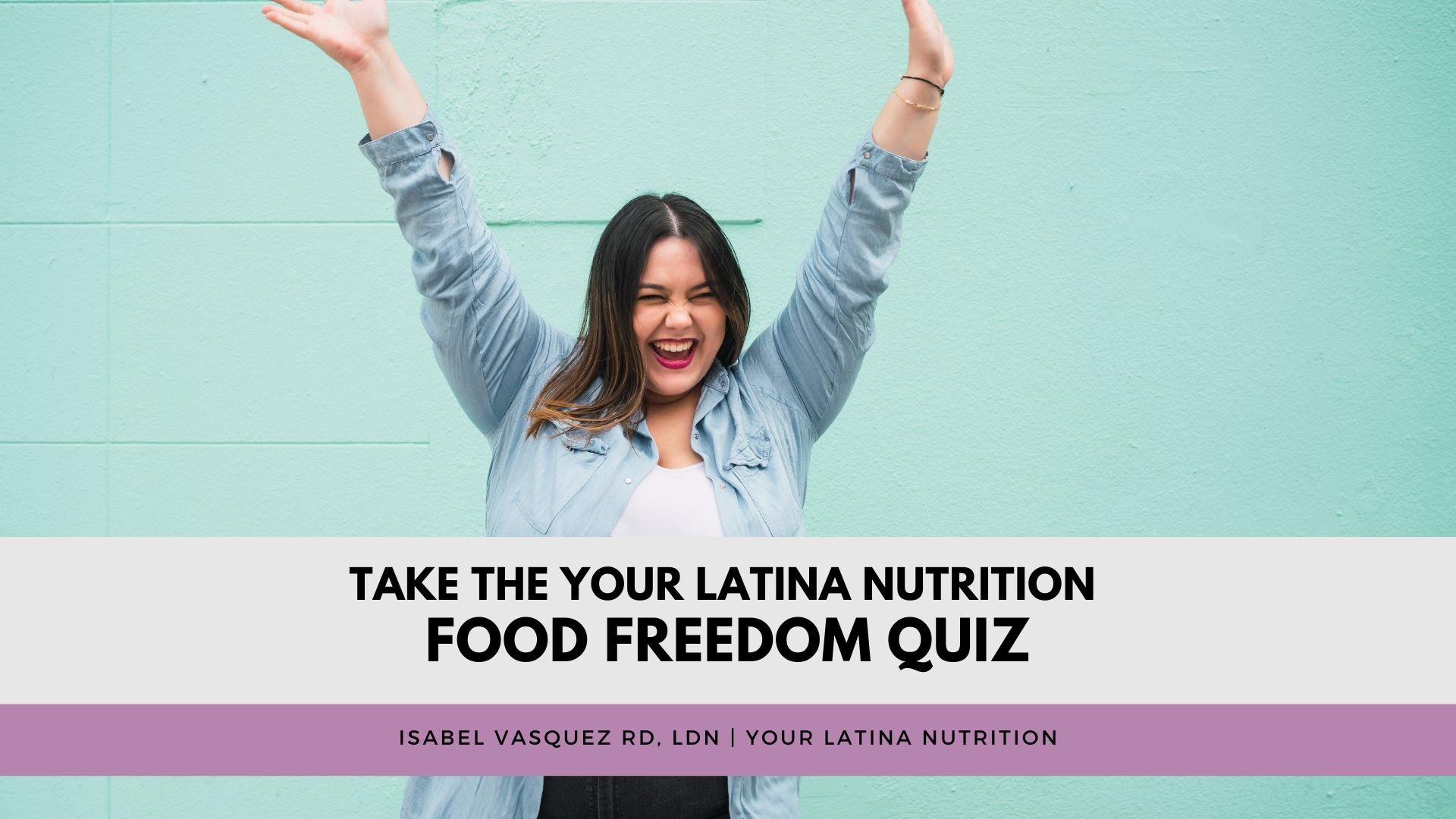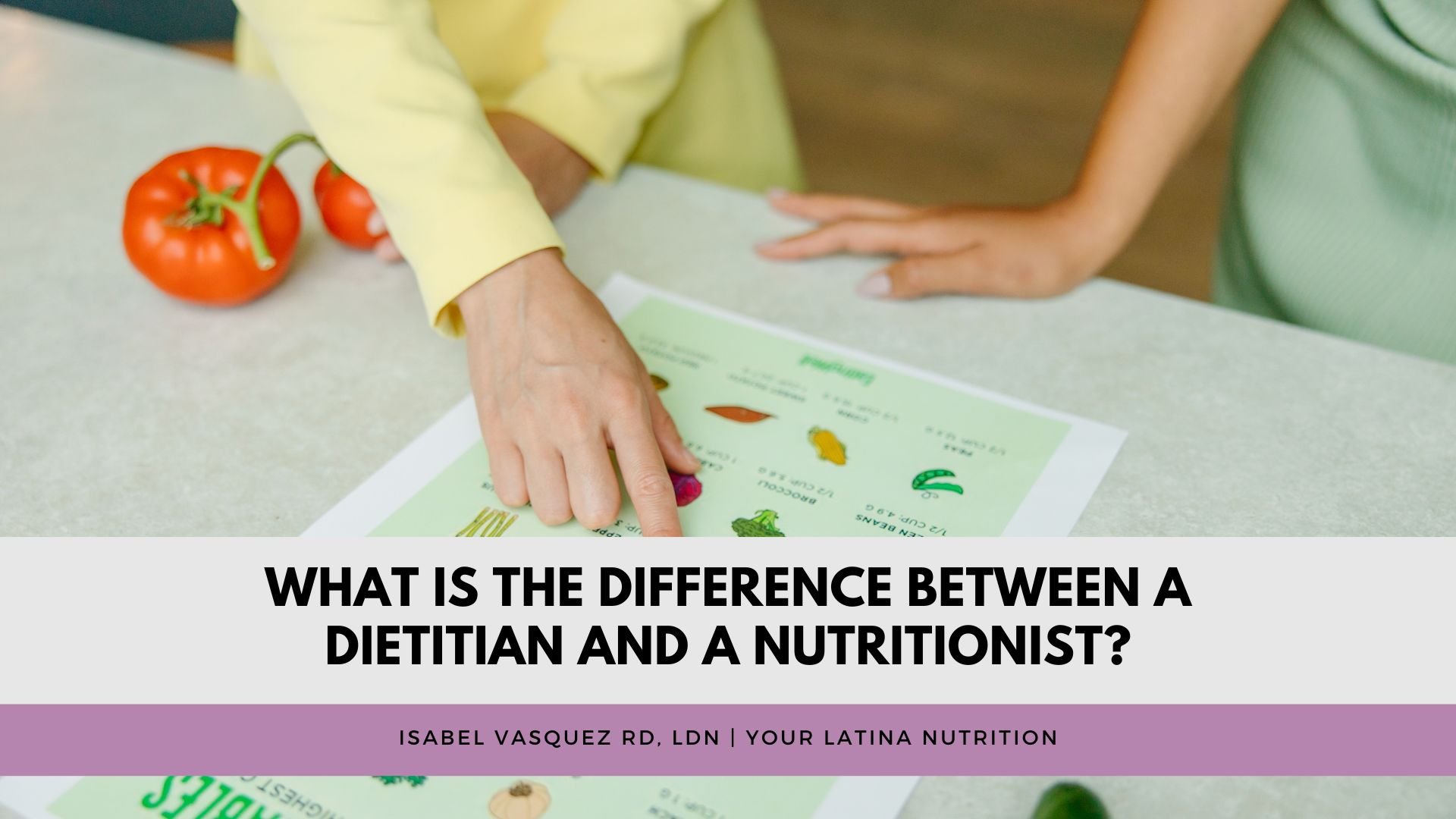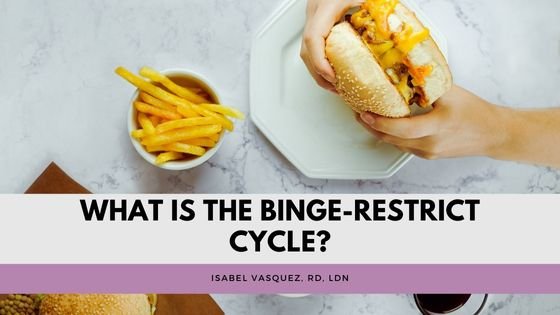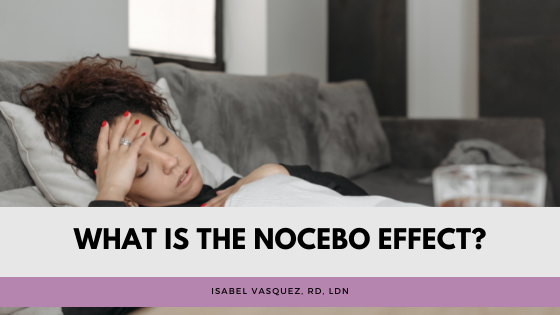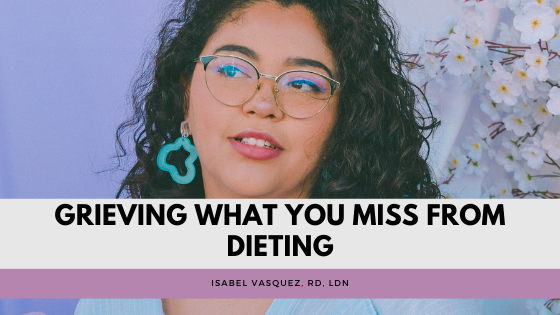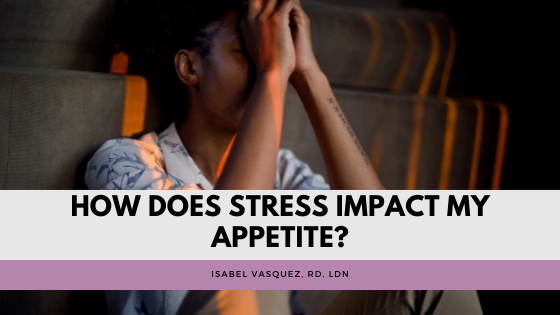
Chula, ven con gusto
In the Your Latina Nutrition blog, we help you learn to nourish & respect your body without harsh food rules, overcome cycles of bingeing and restriction, and embrace your here-and-now body.
You can do this all while keeping your cultural foods alive & adopting health-promoting behaviors.
Enjoy our research-backed articles written by registered dietitians Isabel and Dalina!
Blog Categories
ALL POSTS | RECIPES | INTUITIVE EATING | JOYFUL MOVEMENT | BODY IMAGE | GENTLE NUTRITION | CULTURA
How to Stop Snacking Constantly: Why You're Doing It and 5 Tips to Stop
Feeling out of control with snacks can be stressful, and the likely cause may surprise you. Learn why you can’t stop snacking, plus 5 tips to manage it.
Take the Your Latina Nutrition Food Freedom Quiz!
Food freedom may seem far-fetched, but you can absolutely find food freedom with work and intention. Take our food freedom quiz to learn if you have made peace with food.
What is the Difference Between a Dietitian and a Nutritionist?
Many people use the words “dietitian” and “nutritionist” interchangeably. However, they are not the same thing. Learn the difference between the two and which one you should work with.
Intuitive Eating Before and After: What Results to Expect
Before and after photos are all too common, but they can cause real harm. Learn what before and after transformations to expect with intuitive eating, plus whether weight loss can be achieved with this non-diet approach.
The 5 Best Books About Emotional Eating
These days, emotional eating is all over the media. Diet culture has portrayed it as something shameful and to avoid when in reality, we eat for many reasons, one reason being our emotions! Learn whether emotional eating is something to be concerned about, and the 5 best books about emotional eating.
An Alternative to Dieting For When You're Done Counting Every Calorie
Fad diets have been popular for decades if not centuries. But the reality is, they don’t work and can actively harm your health. Learn an alternative to diets that can help you feel better in your body.
What You Need To Know About Weight Stigma
Studies have shown that healthcare providers are some of the worst perpetrators of weight stigma.
For example, one study including 122 physicians found that the physicians were more likely to prescribe more tests to, spend less time with, and have negative views about heavier patients.
Another study found that among dietetic students and professionals, negative attitudes about higher weight patients were extremely prevalent.
Can I Manage My High Cholesterol With Intuitive Eating?
When beginning your intuitive eating journey, it’s normal to have a lot of doubts and questions. One I hear often is how to manage a chronic health condition with intuitive eating. You might wonder, how can I stop dieting if I need to adopt certain eating patterns to manage this condition? High cholesterol is a common concern in our Latinx community so in this blog, we’ll talk about what high cholesterol is and how intuitive eating can help!
Food Habituation: The Case for Eating Whatever You Want
Have you ever avoided keeping a specific food in the house out of fear you’ll eat the whole package in one sitting? Many people avoid keeping chips, cake, cookies, or ice cream around for this very reason.
But what if I told you that keeping these foods around could actually heal your relationship with them?
We think the issue is the food itself and that the solution is simply to avoid it. We end up depriving ourselves of foods we really enjoy! Or we don’t give ourselves the chance to neutrally observe whether or not we even like the food. Food habituation can help.
What Are The Four Types Of Hunger In Intuitive Eating?
Our bodies are set up to combat starvation. When your body is being underfed (like when you’re dieting), it sets into motion biological hunger signals to get you to eat. If these signals are ignored long enough, like through chronic dieting or an eating disorder, your body may stop sending these hunger cues. It may try to adjust to working on less energy.
How to Use the Hunger Fullness Scale for Intuitive Eating
With the prevalence of diet culture in our society, it’s no wonder so many people feel disconnected from their hunger and fullness cues. According to the CDC, as of 2013-2016, about half of Americans reported trying to lose weight in the last 12 months. And the majority of people reported eating less food to do so.
When you’re ready to ditch diets and embrace a healthier relationship to food and your body, one step can be relearning to honor your body’s hunger and fullness cues. That’s where the hunger fullness scale comes into play.
What is the Binge Restrict Cycle?
The binge-restrict cycle happens when periods of restriction are followed by binges or periods of eating beyond comfortable fullness. The “binge” part can also include feeling out of control around food. Oftentimes, the restriction may be due to some sort of diet, which then leads to feelings of deprivation and obsession with food. Then comes the binge, which is often followed by guilt or shame. The guilt and shame can make you want to start restricting again, maybe in the form of “I’ll get back on track on Monday!” and thus begins the cycle all over again.
Can I Practice Intuitive Eating if I Want to Lose Weight?
Intuitive eating is a weight-neutral, non-diet approach to nutrition, but when you’re first starting your journey part of you may still hope for weight loss. Learn how to start your food freedom journey even if still you want to lose weight.
Busting the "If You Eat Like Me You Can Look Like Me" Myth
We’ve all heard judgments or seen content implying that our weight is predominantly determined by what and how much we eat. Yet, this idea is highly stigmatizing specifically towards larger-bodied folks. Learn 4 reasons why this is a complete myth so you can start to accept your body.
What is the Nocebo Effect?
You’ve probably heard of the placebo effect before—where you receive a fake medical treatment (e.g. a pill) but experience improvements in your symptoms—but have you ever heard of the nocebo effect? Learn what the nocebo effect is and how to reduce its impact on your life.
Grieving What You Miss From Dieting
Ditching diets can be exciting but also scary. Learn how to address some aspects of dieting you might miss: a goal, building confidence, and community.
How Does Stress Impact My Appetite?
Stress causes hormones to be released that impact appetite and cravings. Learn how stress impacts the body, especially your eating habits.
How is Scarcity Affecting My Relationship with Food?
Food scarcity can happen from food insecurity or from a diet mentality. Learn how food scarcity affects binge eating and how to overcome it.
What Does Dieting Do To My Body and Mind?
When our bodies sense food deprivation, they make changes to survive. Learn what the Minnesota Starvation Study revealed about how dieting affects the body and mind.
Why Ditching Diets Means Breaking Up With Perfectionism
Perfectionism is on the rise, and it’s deeply linked with diet culture and white supremacy. Learn how it relates to dieting and how to break free.


